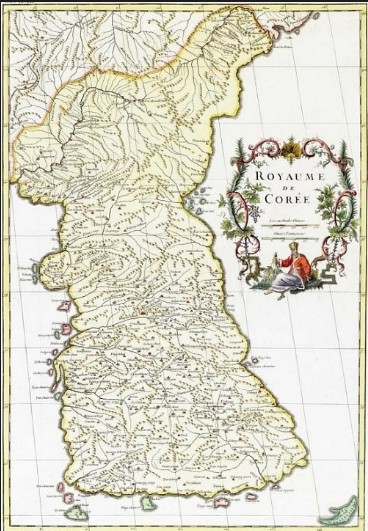Korean history is rich with significant events that have shaped the culture, society, and geopolitical landscape of the country. Understanding these key moments provides valuable insight into why Korea is the way it is today. For non-Koreans who want to learn about the pivotal moments in Korea's history, this guide will introduce some of the most important events that have had a lasting impact on the nation.

✅ The Three Kingdoms Period (57 BCE – 668 CE)
One of the earliest significant periods in Korean history is the Three Kingdoms Period, which lasted from 57 BCE to 668 CE. During this time, Korea was divided into three separate kingdoms: Goguryeo 고구려, Baekje 백제, and Silla 신라. Each kingdom controlled different regions of the Korean Peninsula and fought for dominance over one another.
This period was crucial for the formation of Korean culture, language, and societal structure. By the end of the Three Kingdoms Period, the Silla Kingdom 신라왕국, with the help of the Tang Dynasty of China, unified most of the peninsula in 668 CE, marking the beginning of the Unified Silla era.
✅ Goryeo Dynasty and the Invention of Movable Metal Type (918–1392)
The Goryeo Dynasty 고려왕조 (from which the name “Korea” is derived) was a time of great cultural and technological advancements. One of the most notable events from this period was the invention of movable metal type in 1234, over 200 years before Gutenberg’s printing press in Europe. This invention allowed for the mass production of books, particularly Buddhist scriptures, and spread knowledge more efficiently throughout the society.
✅ The Joseon Dynasty and the Creation of Hangul (1392–1897)
Perhaps the most celebrated period in Korean history is the Joseon Dynasty 조선왕조, which lasted over 500 years. The dynasty is known for its Confucian-based government, the flourishing of Korean arts and culture, and its advancements in science and technology. However, one of the most remarkable achievements of this period was the creation of Hangul 한글, the Korean alphabet, in 1443 by King Sejong the Great 세종대왕.
Hangul was designed to be easy to learn and accessible to all Koreans, regardless of their class or status. This democratization of literacy was a pivotal moment in Korean history and remains a source of national pride today.
✅ The Japanese Occupation (1910–1945)
One of the most painful chapters in Korean history is the Japanese occupation, which lasted from 1910 to 1945. During this period, Japan exerted harsh colonial rule over Korea, suppressing the Korean language, culture, and traditions. Many Koreans were forced into labor, and thousands of women were subjected to sexual slavery, known as "comfort women."
This period of occupation left deep scars on the Korean people and still affects Korean-Japanese relations today. However, it also fueled the rise of Korean nationalism and the desire for independence, which would eventually lead to the next pivotal moment.
✅ The Korean War (1950–1953)
After World War II, Korea was liberated from Japanese rule, but the peninsula was divided along the 38th parallel 38선 into two zones, with the Soviet Union backing the North and the United States supporting the South. Tensions between North and South Korea escalated into the Korean War 한국전쟁 in 1950, which lasted until 1953 and ended in an armistice rather than a peace treaty, technically leaving the two Koreas still at war.
The Korean War devastated the peninsula, leaving millions dead and cities in ruins. However, it also solidified the division of Korea into two separate nations: North Korea (DPRK) 북한 and South Korea (ROK) 남한. This division has shaped the political, economic, and social landscape of both countries to this day.
✅ The Miracle on the Han River (1960s–1990s)
One of the most remarkable transformations in modern history is South Korea’s economic rise, often referred to as the Miracle on the Han River 한강의 기적. Following the devastation of the Korean War, South Korea was one of the poorest countries in the world. However, under the leadership of President Park Chung-hee 박정희 대통령, who ruled from 1961 to 1979, South Korea underwent rapid industrialization and economic development.
By the 1990s, South Korea had transformed into a high-income, technologically advanced country. This period of growth is often credited to the country’s emphasis on education, technological innovation, and export-driven economic policies.
✅ The 1987 Democratic Uprising and the Birth of Modern Democracy
In the 1980s, South Korea was still under authoritarian rule, and citizens were demanding democratic reforms. The June Democratic Uprising in 1987 was a series of mass protests that pushed the government to introduce significant democratic reforms, including direct presidential elections.
This event is considered a turning point in South Korea’s modern political history, marking the beginning of a vibrant and dynamic democracy that continues to thrive today.
✅ The 2018 Inter-Korean Summit
A more recent, yet symbolically significant event in Korean history is the 2018 Inter-Korean Summit, where South Korean President Moon Jae-in and North Korean leader Kim Jong-un met at the Demilitarized Zone (DMZ). This summit, although not resulting in immediate denuclearization or peace, marked a significant step in easing tensions between the two Koreas and symbolized a possible path toward reconciliation.
Conclusion
Korean history is filled with moments of both great suffering and tremendous resilience. From the ancient kingdoms to the modern-day technological powerhouse, these key events have shaped the Korean Peninsula into what it is today. Understanding these historical moments provides not only a window into Korea’s past but also a deeper appreciation of its culture and people.
Whether you're interested in history, politics, or culture, learning about these pivotal events is essential for anyone wanting to gain a comprehensive understanding of Korea.